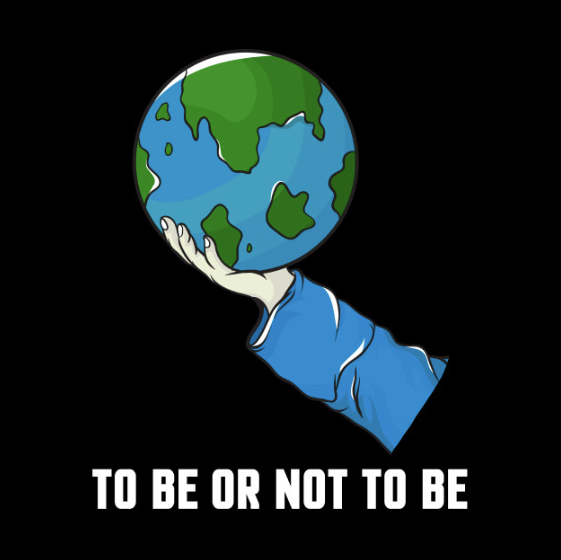For billions of years we have had life on our planet, but no species had such a catastrophic effect on life on the planet as humans now have. And that is for one simple reason: We make more waste than our environment can handle.
Animals do consume resources, and they do make waste. They eat, they drink, they breath. They even build places to live for themselves. They poop, make methane, and breath out CO2. Their remains can last for many many years, some fossils being billions of years old. In all that we are no different. But animals use no more than they need, humans do. The amount of waste left behind can mostly be re-used by other animals and plants, that of humans cannot.
And yes, animals can disturb ecosystems. If a species enters a new eco-system it can have a devastating effect for the old inhabitants of that eco-system, outcompeting them for food and space. But they do it to one eco-system, and over a longer time. Humans do it fast, and no place on earth is safe anymore. Toxic plastic has now been found on the deepest trenches of the oceans, and the highest mountain peak is overcrowded by tourists and the waste they leave forever frozen in the snow. Even in space our debris is starting to form problems, luckily this is only a problem for ourselves.
But we need these eco-systems if we are to survive ourselves. We can’t life in a desolate place. We can’t get food from nothing. We need the temperatures and the weather to be stabilized by these very eco-systems we destroy.
Does that mean we have to abandon our science and technology and live like animals? Not at all. We need to use that very same science and technology to make a future where we live in harmony with life around us. If we are smart enough to settle in every eco-system, we must be smart enough to sustain in every eco-system. We don’t need to fight the environment but co-exist.
And we can do this! We have lived this way until not too long ago, even in the recent times when humans explored almost every corner this earth has to offer. In the last decades we have made many innovations already that allow us to leave more sustainable if we want, and the end is not insight. But we must want it. We simply need to not look to satisfy our immediate individual desires, think as a species that desires a future.
Our waste should not harm, but nurture the places we leave it in. Then we don’t need resources that run out, but we will be replenished with new resources from live around us. Only in this circular co-existence can humans last. Let our legacy not be waste left behind after we made the world uninhabitable to ourselves. Let it be human life sustaining itself into a future so distant we cannot even imagine it. A future where we don’t destroy eco-systems, but create new ones where there were none. If we accomplish this, our future will not even be limited by earth itself. This is the real growth we should strive for, not the growth in numbers and graphics we made up for ourselves.
But time is running out. With forests burning and fertile land becoming deserts. Waters are increasingly toxic and healthy air can soon only be found in places with few humans. There will be a point of no return for us, when generations in the near future will have to face our own extinction. If we don’t change.
The species that we have already lost will not come back, and for many it is already too late to be saved. But for ourselves we still have chance, and we should take it as soon as we can. New species will evolve as the earth slowly changes, replacing the old ones that are lost. I do not fear that nature won’t find its way in the end, perhaps even stronger and more resilient as we will have taught it a lesson. Creating a sustainable circular economy boils down for us as a species to one question: To be or not to be?

